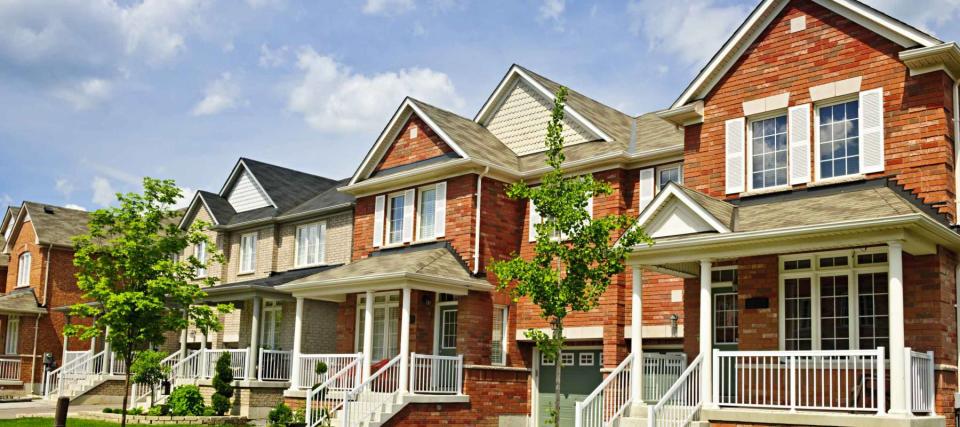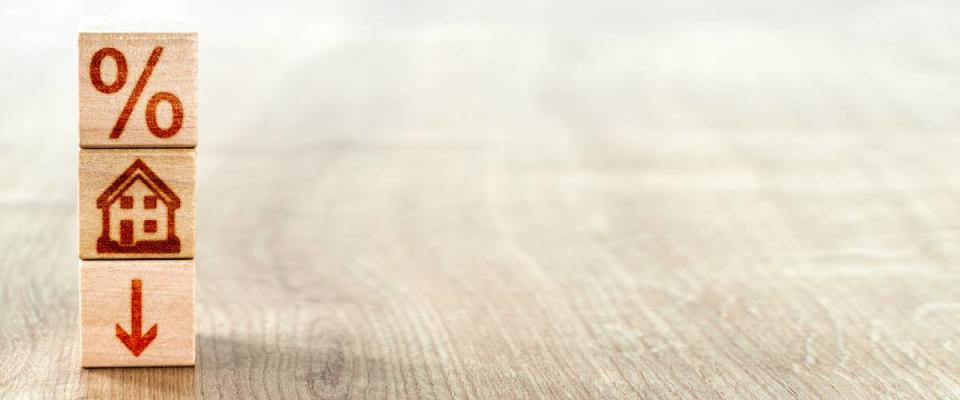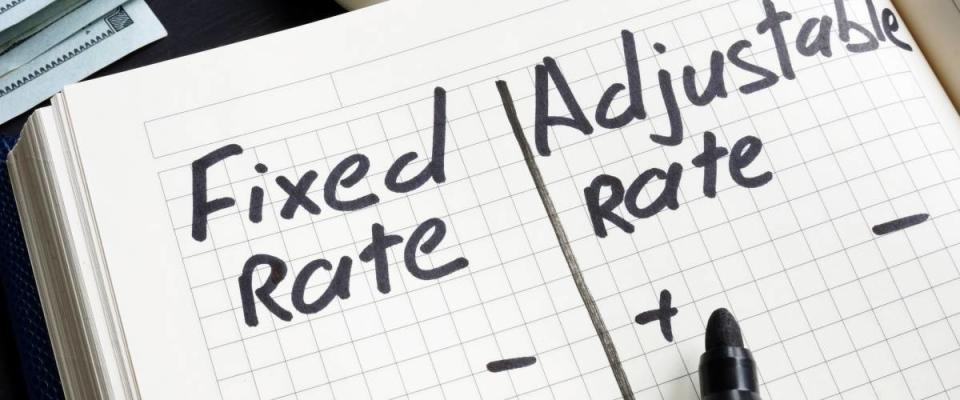Mortgage rates nose-dive toward all-time lows as a refinance fee is ended

Mortgage rates have done what might have seemed unthinkable a few months ago: They've dropped back to within shouting distance of their recent record lows.
When 30-year fixed mortgage rates spiked during the spring, there were predictions that the economy's recovery from COVID could push rates as high as 4% this year. But now, they're deep beneath 3% once again — and are offering hefty savings to homebuyers and refinancing homeowners.
Rates have plunged with help from the government's announcement that the end is coming for a widely loathed fee on refinances, though another reason is that the recovery is looking like less of a sure bet.
30-year mortgage rates

The average interest rate on a 30-year fixed-rate mortgage decreased to 2.78% last week, mortgage giant Freddie Mac reported on Thursday, marking the fourth consecutive week of declines.
At 2.78%, the 30-year is cheaper now than it’s been since February 18, when the average was 2.81%. Rates are now just one-eighth of a point above the all-time low of 2.65% reached during the first week of January.
Rates began ticking upward through February and March, as the nation’s COVID-19 vaccination drive kicked into high gear. But they’ve been trending in the opposite direction ever since.
The recent drop in rates has been tied, in part, to the economic uncertainty created by rising COVID infections.
"Concerns about the Delta variant, and the overall trajectory of the pandemic, are undoubtedly affecting economic growth," says Sam Khater, Freddie Mac's chief economist. "Declining rates provide yet another opportunity for homeowners to save money on their monthly mortgage payment through a refinance."
At this time a year ago, 30-year mortgage rates were averaging 3.01%.
15-year mortgage rates

The average rate on 15-year fixed-rate mortgages also dipped, falling from 2.22% to 2.12%. A year ago, 15-year fixed loans had an average rate of 2.54%
Fifteen-year mortgages are a popular choice among refinancing homeowners. The Mortgage Bankers Association estimates that 15-year fixed-rate loans account for approximately 20% of all refinances in the U.S.
A decision that's making refi loans cheaper is another reason for the overall slide in mortgage rates: The Federal Housing Finance Agency is scrapping its 0.5% fee on refinances. That surcharge has cost the typical borrower an extra $1,400, according to the mortgage bankers.
The FHFA oversees both Freddie Mac and Fannie Mae, two government-sponsored enterprises that buy most mortgage loans from lenders. The agency introduced the fee last year because it said Freddie and Fannie needed the revenue because they were facing billions in losses related to the pandemic.
As lenders passed the additional cost on to consumers, the fee "artificially increased the average mortgage rate," says Zillow economist Matthew Speakman. Banks are now lowering their rates ahead of the surcharge's official end on Aug. 1.
5/1 adjustable mortgage rates

The rate on five-year adjustable rate mortgages — also known as 5/1 ARMs — averaged 2.49% last week, Freddie Mac says. Unlike its fixed-rate counterparts, the 5/1 ARM saw its typical rate increase, from 2.47% a week earlier.
Last year at this time, the average rate on a 5/1 ARM was a considerably higher 3.09%.
With adjustable-rate mortgages, the interest rate you pay is fixed during the first phase of the loan. After that, the rate adjusts periodically based on a number of factors.
With a 5/1 ARM, you pay a fixed interest rate for the first five years, then your rate is recalculated every (one) year after that.
How to land one of today's low rates

“It remains to be seen how long we'll be able to enjoy these rates," observes Matthew Graham of Mortgage News Daily. Mortgage rates tend to track the interest on Treasury bonds, and those rates have been fluctuating as investors react to COVID developments.
If you're a homeowner who's been holding off on refinancing, it's probably time to stop procrastinating. And, there's been a lot of that: A recent Zillow survey found that only 22% of eligible homeowners took out new loans between April 2020 and April 2021, despite ultra-low mortgage rates.
Once you're ready to finally get off the refi fence, you'll need to convince lenders that you're a good risk so that they'll offer you one of the lowest rates around.
Start by taking a free peek at your credit score, to see where it stands. The best mortgage rates tend to be offered to people with higher scores, so you may want to do a little rehab on yours before you start applying for refi loans.
Lenders also will want to see that you don't have a lot of other debt, which can put pressure on your ability to make regular mortgage payments. If you’re carrying several high-interest debts, like credit card balances, consider rolling them into a single, lower-interest debt consolidation loan. It’ll free up space in your budget and help you wipe out those debts faster.
When you start approaching lenders, don't stop after just one. Studies from Freddie Mac and others have shown that comparing mortgage offers from at least five lenders will reward you with thousands of dollars in savings over time
Utilize your comparison shopping skills to look around for the best rate on homeowners insurance, too. If reducing the cost of homeownership is the goal, there are more ways to do that besides refinancing your home loan.

 Yahoo Finance
Yahoo Finance 